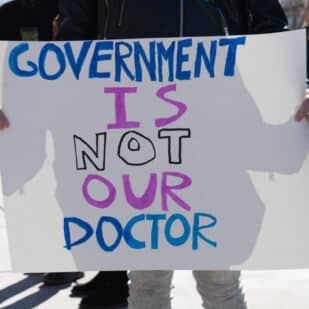In recent years, the topic of “abortion reversal” has sparked heated debates, with anti-abortion organizations pushing state lawmakers to promote this controversial and unproven treatment. This article delves into the heart of the matter, exploring the science, the legal landscape, and the ethical implications surrounding abortion reversal.
What Is “Abortion Reversal”?

Abortion reversal involves administering a high dose of progesterone within 72 hours of taking mifepristone, aiming to “reverse” the effects of the medication abortion process.
The Controversial Landscape

Republican lawmakers in at least 15 states have passed laws requiring healthcare providers to inform patients about abortion reversal, while Colorado took a different stance, labeling it as medical misconduct.
So Now You Want Women to Have a Choice?

Proponents argue that it empowers women to change their minds and save their pregnancies, asserting that patient autonomy is paramount. Christa Brown, a registered nurse and senior director of medical impact for Heartbeat International, states, “The abortion pill reversal process gives her a chance to save her baby’s life.”
Medical Opposition

However, critics argue that insufficient research has been conducted to ensure the safety and efficacy of abortion reversal. Leading medical organizations, such as the American College of Obstetricians and Gynecologists and the American Medical Association, have labeled abortion reversal as “unproven and unethical.” They emphasize that claims regarding its effectiveness are not based on scientific evidence.
Legal Battles

The debate extends to the legal realm, with the American Medical Association suing North Dakota over its law mandating abortion reversal information. Colorado’s new law faces legal challenges, with critics arguing that it infringes on religious freedom and creates deceptive advertising regulations.
The Lack of Scientific Data

Despite the heated debate, scientific data on abortion reversal remains scarce and inconclusive. Researchers have criticized laws promoting abortion reversal, describing them as encouraging women to participate in unmonitored experiments. The few studies available are often led by abortion reversal proponents, raising concerns about bias and lack of oversight.
Safety Concerns

A randomized study on abortion reversal treatment was halted due to safety concerns. It revealed that women who took mifepristone without following it with misoprostol faced a significant risk of severe hemorrhaging. Critics argue that offering abortion reversal treatment without sufficient scientific backing is unethical and potentially dangerous.
The Ethical Dilemma

Dr. Mitchell Creinin, an OB-GYN, points out the ethical dilemma surrounding abortion reversal. He argues that it falls outside the bounds of ethical medical care and FDA criteria for off-label use, as there is insufficient research to validate its safety and efficacy.
The Divide Continues….

The controversy surrounding abortion reversal continues to divide lawmakers, medical professionals, and the public. While proponents argue for patient autonomy and the potential to save pregnancies, critics emphasize the lack of scientific evidence and ethical concerns. As this debate unfolds, it remains essential to consider the safety and well-being of women facing difficult decisions about their reproductive health.
Texas Abortion Case Heard Today: Women’s Health at the Forefront

In the midst of a legal battle that has captured the nation’s attention, the Texas Supreme Court is set to deliberate a crucial question: Do the state’s abortion laws adversely affect women’s health when they encounter pregnancy complications?
READ: Texas Abortion Case Heard Today: Women’s Health at the Forefront
When Doctors Refuse Care Based On Their Own Beliefs: Coming To An ER Near You

In recent times, healthcare legislation has taken a thought-provoking turn with the emergence of ‘conscience’ bills. These bills grant medical providers significant legal protection when it comes to opting out of specific medical procedures and treatments based on their ethical, moral, or religious beliefs.
Read: When Doctors Refuse Care Based On Their Own Beliefs: Coming To An ER Near You
Exploring Your Options: How To Get Health Insurance When You’ve Lost Your Job

Losing your job can be tough, and one of the pressing concerns that often follows is how to secure health insurance without the safety net of an employer’s coverage. We understand that this can be a challenging situation, but we’ve got you covered. In this comprehensive guide, we’ll walk you through various options to obtain health insurance while unemployed. Let’s dive right in!
Read: Exploring Your Options: How To Get Health Insurance When You’ve Lost Your Job







